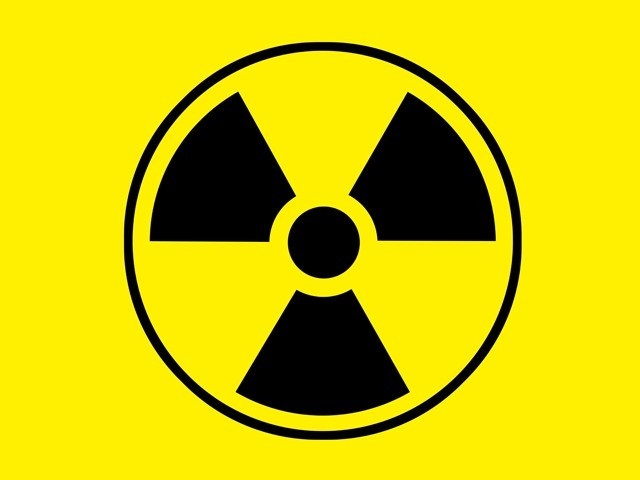The following is research published today from the MEMRI Special Dispatch Series and TV Project.
Special Dispatch No. 4303—Pakistan/China/India/South Asia Studies Project 'If Pakistan Splinters…' – Indian Defense Affairs Writer Imagines Consequences of Pakistan's Break-Up
In a recent article, noted Indian military affairs writer Bharat Verma imagined the likely consequences of Pakistan's break-up for China, Afghanistan, India, and the United States. In the article titled "If Pakistan Splinters…," he also argued that Pakistan's break-up will be beneficial for pro-democracy forces and will weaken the Islamic terrorism led by Sunni Muslims. Bharat Verma, a former cavalry officer, is an author of several books on Indian defence issues and Editor of the Indian Defence Review magazine. To read the full report, visit http://www.memri.org/report/en/0/0/0/0/0/0/5838.htm.
Special Dispatch No. 4302—Pakistan//India/South Asia Studies Project Fears Over Safety at Nuclear Plants in Pakistan and India
In recent months, concern has been growing in Pakistan and India regarding the safety of nuclear plants in those countries. In mid-October 2011, there was nuclear leakage at the Karachi Nuclear Power Plant (KANUPP) in Pakistan, which led to concern over the ageing nuclear facility. The leakage was reported in the Pakistani media, and the Pakistan Atomic Energy Commission (PAEC) sought to assure the public that the incident was minor. However, some Pakistani environmentalists raised concern over the safety of KANUPP. A Pakistani newspaper also accused the PAEC of downplaying the security concerns regarding the leak. The concern over KANUPP comes amid continuing fear in Pakistan that some terrorist groups could get hold of Pakistan's nuclear weapons. Amid the concern over Pakistan's nuclear weapons, a national debate is emerging in India, where there have in recent months been protests against a Russian-built nuclear plant in the southern Indian village of Kudankulam. Civil society groups are opposing the commissioning of the plant, over safety concerns. Their protests are continuing, despite assurance by former Indian president Dr. A. P. J. Abdul Kalam that the Kudankulam plant has built-in safety measures. To read the full report, visit http://www.memri.org/report/en/0/0/0/0/0/0/5837.htm.
Special Dispatch No. 4301—India/China/South Asia Studies Project Noted Author Blasts Indian Military's Ability to Confront China, Says: Indian Security Forces 'Have Become More and More Like the Indian Government – Cautious, Defensive… And Risk-Averse When It Comes to China'
In a recent article, renowned Indian strategic affairs writer Bharat Karnad questioned the mental attitude preparedness of the Indian Army, Navy, and Air Force to confront China, which he described as India's "only consequential foe." Karnad's article comes amid the growing challenges from the Chinese military to the U.S. and Indian vessels in the South China Sea. In September 2011, Indian media reported that Chinese Navy confronted an Indian vessel off the coast of Vietnam. Bharat Karnad, who has authored several books on India's strategic and nuclear policy, is a professor in national security studies at the Centre of Policy Studies (CPS), a research institute based in New Delhi. In his article titled "Indian Armed Forces Have China Syndrome," Karnad slammed the chiefs of the Indian military for not recognizing the growing Chinese threat to India's interests. Karnad went on to argue that India needs to enter military-to-military collaborations with like-minded countries such as Vietnam to confront China, stating: "Whatever the Indian military's level of eagerness or the lack of it to go toe-to-toe with China, it may be prudent to arm on a priority basis a bold and plucky Vietnam, which has repeatedly shown that it takes no guff from anybody, with everything Hanoi desires, including the nuclearized Brahmos supersonic cruise missile." To read the full report, visit http://www.memri.org/report/en/0/0/0/0/0/0/5836.htm.
Special Dispatch No. 4300—India/China/South Asia Studies Project Chinese Government Daily Accuses India of 'Flexing Its Muscle Toward China'; Says: 'India's Troop Increase on the Border Between China and India is Aimed at Meeting the Requirements of the United States'
Recently, the People's Daily Online, an official Chinese publication, published reports that expressed concern over the expansion of India's military capabilities, especially with regard to the proposed deployment of additional troops on the India-China border. The Chinese concern follows a recent report in the Indian media that the Indian army plans to station 100,000 more troops along the India-China border. In recent years, Indian media have published a series of reports on China's growing military expansion and the incursion of Chinese troops into Indian territory. According to an Indian media report, India's Ministry of Defense recently "approved a Rs. 64,000-crore (approximately $13 billion) military modernization plan that would include raising four new divisions along the India-China border. Two of these would be part of a Mountain Strike Corps dedicated to offensive operations." In the two reports below, China's People's Daily Online accused Japan of facilitating India's military influence into East Asia and blamed India for "joining hands" with Vietnam to increase its influence in the South China Sea. The Chinese publication also accused the United States of relying on India in a strategic move to counter China and added: "India's troop increase on the border between China and India is aimed at meeting the requirements of the United States…" To read the full report, visit http://www.memri.org/report/en/0/0/0/0/0/0/5835.htm. | |
Sunday, 20 November 2011
Posted by
Britannia Radio
at
20:03
![]()

























